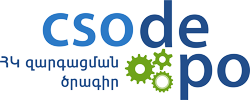Հրապարակումների մրցույթ. Ատելության խոսքի և խտրականության միջազգային գիտաժողով
Source: https://hrantdink.org/en/asulis-en/activities/projects/media-watch-on-hate-speech/2464-call-for-abstracts-international-conference-on-hate-speech-and-discrimination
Hrant Dink Foundation will hold the online conference titled 'International Hate Speech and Discrimination Conference' on December 11-12, 2020 in collaboration with Friedrich Naumann Foundation. We kindly ask applicants to fill the form on hrantdink.org until September 7, 2020.
This conference aims to create a space where the problems caused by hate speech and discriminatory discourse can be revealed and analyzed; moreover, country-specific experiences, strategies, and academic studies for countering these problems could be exchanged, and potential collaborations developed.
In Turkey, as all over the globe, discrimination against women, children, LGBTIQ people, ethnic and religious identities is too common. Political tendencies such as globally rising nationalism and populism, polarization, xenophobia, anti-refugee, and anti-migrant sentiments nurture and popularize discrimination. This situation necessitates developing ways to counter hate speech and discriminatory discourse and raise awareness both locally and globally.
The Covid-19 pandemic started in the winter of 2019 and reached a global scale in a couple of months; it did not increase only discrimination against the local Chinese or Asian communities but also increased nationalism, xenophobia, racism, and anti-migrant sentiments and minorities against refugees and migrants. Thus, they who are portrayed as the cause of various unfavorable political developments and as a threat against social structures are associated with disease and stigmatized as "usual suspects" once again.
After anti-racist protests that started in the US after the police murdered George Floyd, they were embraced in many countries such as the UK, France, Brazil, and Indonesia, protests, and debates revolving around anti-racism, racial inequality and anti-discrimination began to drive the global agenda. Similarly, nation-states and their citizens' attitudes toward racism were challenged and discussed all around the world as were questions of race, history, and the importance of national symbols, like statues. These global outbursts and debates have the potential to guide many global anti-discrimination efforts and discussions.
The efforts for countering hate speech and racism diversify and spread as they become popular in different platforms. Corporate policies of platforms like Facebook, Twitter, and YouTube for countering fake news, hate speech and aggressive discourse are closely followed and discussed. Risks of leaving the identification of the “red line” between hate speech and freedom of expression to private companies, and the responsibility of states, public institutions, traditional means of communication, civil society actors and international organizations in these discussions and efforts will be important discussion topics in the days to come.
The need for creating a pluralist, inclusive, and rights-based discourse in every field and sector is becoming increasingly urgent. Thus, this conference aims to feature the works that analyze with all kinds of exclusionary discourses and actions under the influence of the current status quo, Turkey, and also other countries, from a comprehensive and critical perspective and to seek methods for countering them.
1With the International Hate Speech and Discriminatory Discourse Conference planned to be held on December 11-12, 2020, civil society representatives, academics, legal experts, occupational organizations, media workers and journalists will be brought together to create a common platform for discussion and inspire new academic studies and other methods to counter racism in the field.
We invite people conducting research on the topics below to contribute to the conference with their presentations:
- Concepts of hate speech, discriminatory discourse, dangerous speech, discrimination hate racism
- New approaches to media monitoring/watch works
- Freedom of expression, freedom of the press
- Discrimination and hate speech based on sexual orientation and gender identity
- Discrimination based on belief and religion, xenophobia, discrimination against migrants and refugees, antisemitism
- Ageism
- Discrimination against disabled people
- Double discrimination and intersectionality
- Discrimination originates from authoritarianism, populist and polarized politics
- Online hate speech and researches for monitoring online hate speech
- Roles of different actors like states, private companies, civil society organizations in countering online hate speech, regulatory tools and countering methods
- Methods and tactics of creating counter-narrative/alternative narratives, alternative discourse, pluralist discourse
- Alternative methods for countering discrimination
Applicants should consider the items in the following:
- The working languages of the conference will be English and Turkish. Simultaneous interpretation will be provided. The abstract of applications should be submitted only in English and their translation into English will be applicants’ responsibility;
- The presentations are limited to 20 minutes in order to have time for the Q&A session and the discussions;
- The conference will be streamed live on Hrant Dink Foundation’s Facebook, Twitter and YouTube accounts;
- The conference will be of an ‘interdisciplinary’ nature The conference is open to the participation of researchers from various disciplines including communication and media studies, gender studies, migration studies, anthropology, cultural studies, sociology, political science, psychology, history;
- We are expecting the researchers who wish to attend the conference submit a 300-word abstract of their presentationwith a 150-word resume, to the form below until September 7th, 2020. Only abstracts written in English will be accepted. There will be simultaneous translation in Turkish and English during the event;
- The abstracts that will be featured in the conference will be selected by the international scientific committee.
